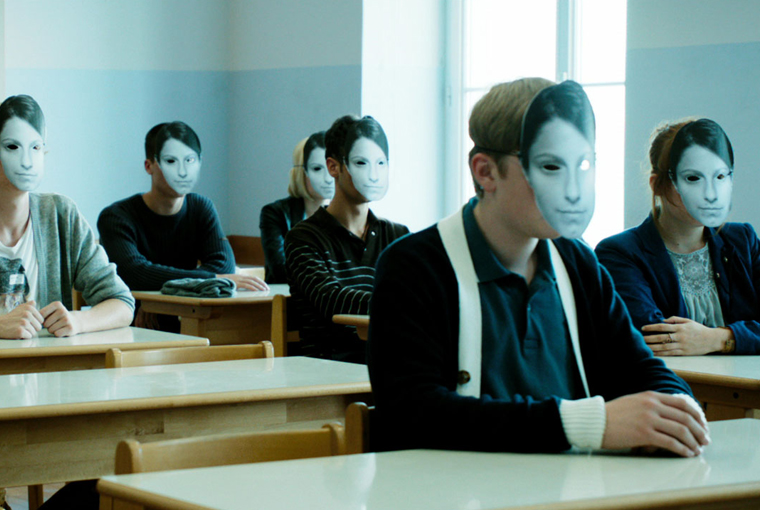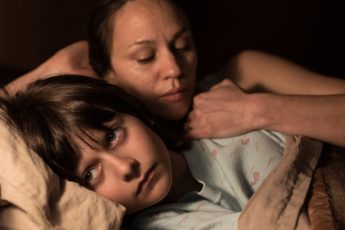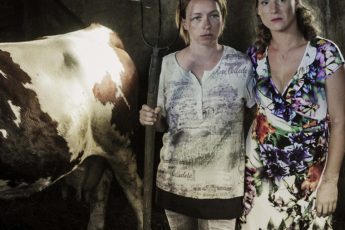A Serious Mann
Rok Biček’s Class Enemy (Razredni sovražnik, 2013)
Vol. 43 (July 2014) by Colette de Castro
The portrayal of teaching difficult students has been gaining more interest in European films recently, starting with Abdellaif Kechiche’s respect for the profession with his inspiring portrayal of literature teachers in films like L’esquive (Games of Love and Chance) and La Vie d’Adèle (Blue is the Warmest Color). In the Slovenian debut Class Enemy, the headmaster tells the protagonist, “Get with the times, it used to be the students who feared us, now it is the other way around”, echoing aphorisms of another Palme d’Or winner, Entre les Murs, in which a young teacher learns how to cope with susceptible French students. The delicate balance of authority and friendship that a teacher must master in order to control his class is a fascinating film subject when done well. This is because the way a teacher’s rhetoric is judged, especially by insecure teenagers out to prove themselves, is primordial to that teacher’s success in the school system.
Rok Biček’s first feature Class Enemy is a film about grief and what it is to be young on the verge of adulthood. A senior class in a Slovenian high-school is debating where to go on their school trip. Rowdy and excitable, they are a stereotypical classroom of teenagers, some leaders, some quiet, some studious. Their heavily pregnant teacher, whose tearful promulgations of love for her class are a little over the top, wants to introduce them to her replacement, the unsmiling German teacher Robert (played by inimitable Igor Samobor). Once in charge, Robert quickly changes the tone, speaks only German and stresses the importance of their end of year exam. Robert is a good teacher, if a cruel one, humiliating them with their lack of knowledge. In a private interview with one of his students, quiet piano-playing Sabina, he suggests that she is a loser for not knowing what she wants in life, and makes her look up and read out the definition of that deprecatory word in the dictionary. This situation begets inquiry when only a while after Robert takes charge, Sabina commits suicide.
What follows is a fascinating psychodrama which concentrates more on the metaphysics of blame than on the suicide itself. Indeed, we never learn how she did it, and no study is made of the personal grief of Sabina’s best friend. Biček studies the pack mentality that teenagers can often have, but unusually here, their fury is not directed at another teenager, but on their German teacher.
It’s shocking how quickly their dead classmate is forgotten in their desperate attempt to make Robert admit his perceived liability. The angry students put constant reminders of Sabina in Robert’s wake, candles leading up to his office, ghostly recordings of her piano-playing. They then stand and watch him, waiting for him to crack and somehow admit that what happened was his fault. But of course it isn’t, and he never does. This film is also remarkable for the way it presents the students’ realization that everything in their lives from now on – the choice of life over death, forgiveness over blame, and conformity over rebellion, will be entirely their own choice. This painful entry into adulthood is portrayed just at the moment of leaving school, when teachers no longer have answers to all their questions. For the first time the students experience what it is to look at the gaping mouth of the abyss and not find anything to hold on to.
Shortly after the suicide, Robert adapts his curriculum to suicide and begins lecturing about Thomas Mann’s writings on grief. He writes a quote from Mann’s The Magic Mountain on the board, “Death is not an experience for the person who has died, but rather one for those left behind”. Mann certainly knew something about grief, his two sisters committed suicide, so did his sons Klaus and Michael and the second wife of his brother. But this discerning teaching falls mostly on deaf ears and those who are the most virulent about Robert’s fault are those who knew Sabina the least. Finally, it is the accusation of being a Nazi over the school radio network that affects the tough-skinned Robert. This nasty accusation is of course all the more ironic given Robert’s chosen class subject. Mann’s exile and outspokenness against Hitler would have quickly quieted the students in this harsh, meaningless accusation if they had chosen to listen to him at all during their period of grief and confusion.
Class Enemy is the first feature film by Rok Biček. It won the recently established Feodora prize in Venice and the Slovakian film festival, both in 2013. Like many great films about education, this promising debut uses language to illustrate the pain of youth and its education. An elegant and serious portrayal of teenage angst, the students ultimately learn that the only people they need to forgive for this death are themselves.




Leave a Comment